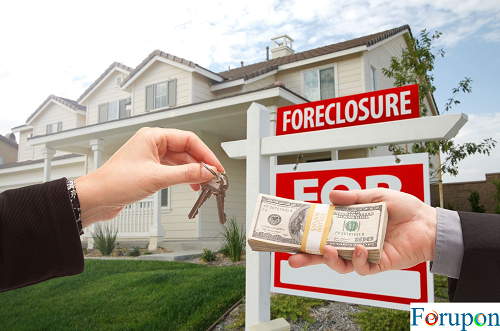What to know when you decide to buy a Foreclosure house
Buy A Foreclosure House: One joy – another’s suffering. For if a real estate owner gets into massive financial difficulties and creditors decide to collect at least part of their receivables with the help of a compulsory auction, there is often a laughing third party. Those who buy their (the owner’s) own home in the course of a compulsory auction can, under certain circumstances; acquire a property at extremely low prices.
Always available: An independent report
An independent report on the object is available in any case. Before a district court calls foreclosure, it instructs an independent expert to determine the market value of the property. His report provides a precise description of the property, including all defects. But beware: The report is only complete if the expert was able to visit the object himself.
Shadow side of the compulsory auction
Despite the obvious advantages for the buyer of a property, foreclosure has its downsides, too. Thus, a prior visit to the object is not always possible. And even the district court has no means to obtain this opportunity for interested parties.
Anyone who wants to see a foreclosure object from within should therefore contact the principal creditor – usually the debtor’s house bank. If an appraiser has also been denied access, you should keep your hands off the property and look for alternatives.
Other imponderables
And there are more imponderables in buying foreclosure houses. For example, the rights of the debtor may encumber the object although the buyer has the eviction decision a clearance title in his hand. Nevertheless, additional costs may be incurred through the eviction. The market value appraisal does not consider all aspects. For example, general legal problems such as inadequate building permits, lack of access to roads and sewers, contaminated sites in the ground, or others are not sufficiently listed. When the contract comes to the new owner of the property any additional costs – such as the outstanding property tax – will come too.
Missing warranty
Sometimes, the buyer may not be able to use his property immediately because, for example, tenants are blocking the object. But the biggest toad that must be swallowed in the event of a compulsory auction is the missing guarantee. Because the right to warranty does not exist in this case. The rules on the liability for defects in the purchase under the Civil Code are inapplicable in foreclosure.
If you want to bid at a forced auction, you need a solid financing concept. Therefore, clarify the total financing of the object before the auction date. You must pay the deposit of 10% of the market value after your first bid. This is possible by prior wire transfer to the court cash register, bank guarantee, or with a crossed check issued by your bank. The full purchase price is due after four to six weeks.
Conclusion: If you want to buy an object from a foreclosure auction, you may be able to save a lot of money. However, it should have both a financial and a certain time cushion to be able to cover additional costs in the wake of the surcharge or delays in the settlement.
Settlement is possible by purchasing a contract
If the property is foreclosed in the course of bankruptcy proceedings, settlement by way of a purchase agreement is often possible. That is when a prospect submits a good offer to the insolvency administrator and all sides can avert the much more protracted foreclosure procedure at the last minute.
Unlike in other tenancies, the so-called first owner of a property in foreclosure has the right to terminate a lease or lease in compliance with legal deadlines. However, he must be able to demonstrate a legitimate interest.


Comments are closed.